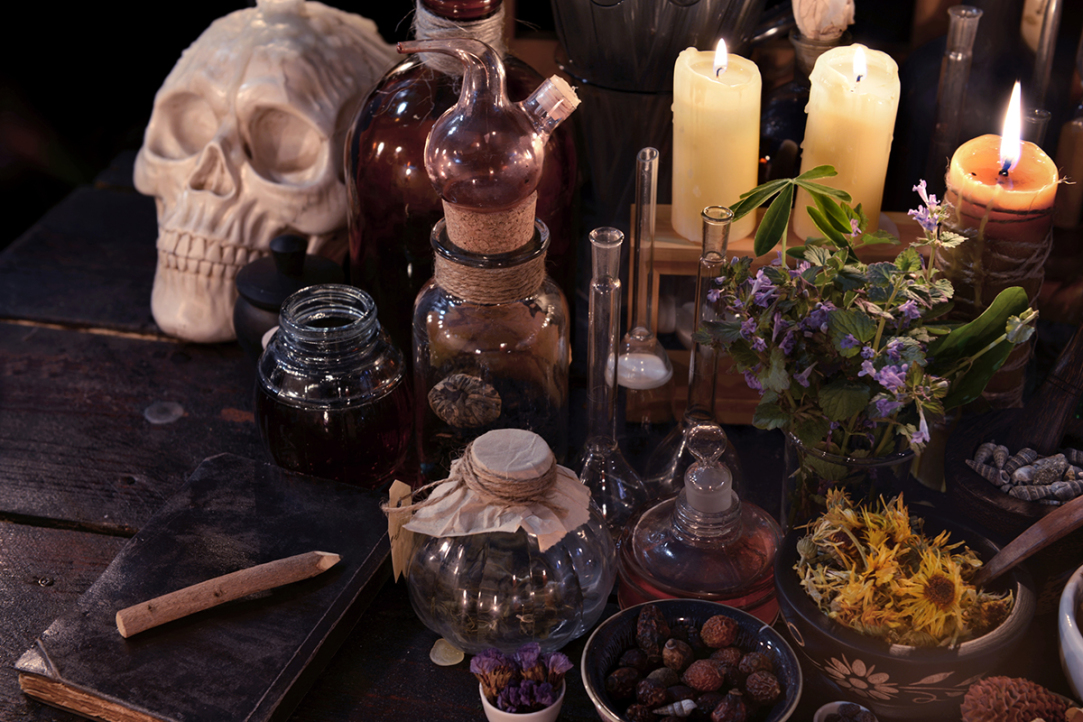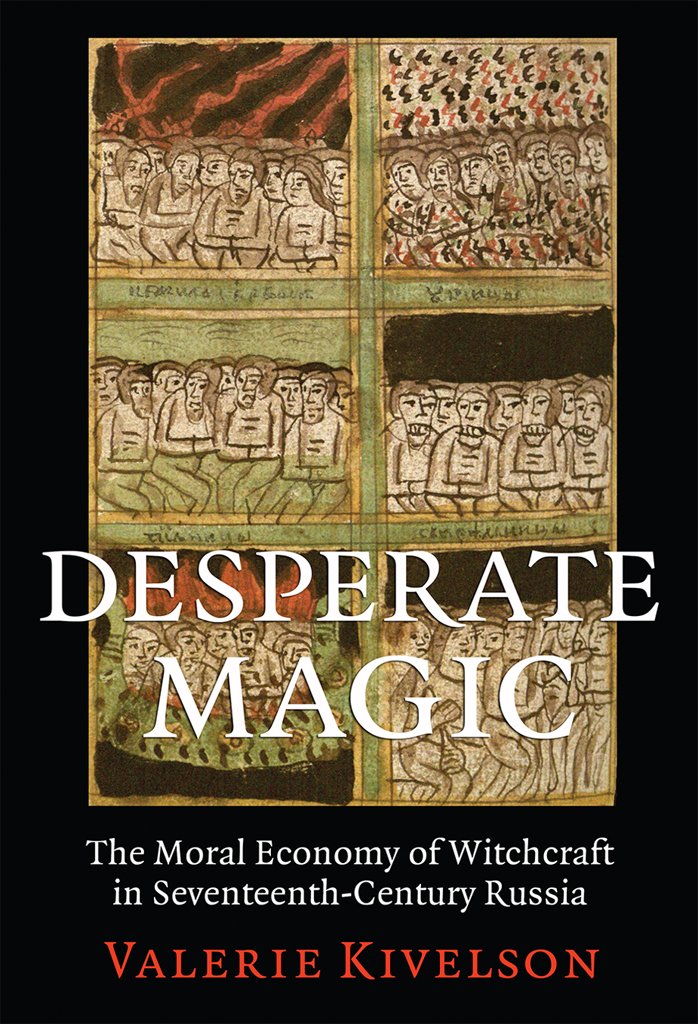Medieval Russian History through the Eyes of American Historian

On June19, Valerie Kivelson, Professor of History at the University of Michigan, conducted an online workshop ‘How to Draw Hatred? The Litsevoi Letopisnyi Svod and Depictions of Religious Others’. It was organized by HSE Cenre for Medieval Studies within the series of discussions on medieval Russia. She spoke with HSE News Service about the seminar, her attitude to historical research, and having online discussions instead of live meetings.
Valerie Kivelson is an expert in Medieval and early modern Russia, history of cartography, history of witchcraft, religion, and political culture, among other topics. She is the author of many books and publications on these issues, including such as 'Desperate Magic: The Moral Economy of Witchcraft in Seventeenth Century Russia'. She was also a guest editor of 'Witchcraft Casebook: Magic in Russia, Poland and Ukraine. 15-21st Centuries'. Valerie Kivelson has been cooperating with HSE for a long time visiting Moscow on a regular basis and meeting with students and experts.
Valerie Kivelson, Professor of History at the University of Michigan
— How did you begin your research thirty years ago and how has the research changed over these decades?
— When I entered the field, the Cold War still hung over the field of Russian Studies on both sides of the ‘Iron Curtain’. Because my parents were scientists, when I was a child I met visiting Soviet scholars and realized that they were human beings, just like us. This was a surprising discovery for an American child in the 1960s and 1970s! I was always suspicious of exaggerated claims about totalitarianism in the Soviet Union.
When I started my research career in the 1980s, my goal was to see if under tsarist rule the population was able to express opinions and make its voice heard. I wanted to explore the agency of people usually considered abject and passive under absolute rule. I considered this both a worthy topic in its own right and a bit of an Aesopian metaphor for understanding Soviet society.
Over the decades, different questions have come to animate my research. With the fall of the Soviet Union, debates over authoritarianism faded a bit, and other questions rose to the fore. I have become interested in gender and in matters of belief, both religious and magical. Both of these themes are important in my work on witchcraft. And I have become interested in the power of visuality, which was expressed in my work on cartography and in my current project on images of Muscovite empire.
Finally, given the very different political world we live in now, I feel a new urgency in representing patterns of cruelty and exploitation that were as much part of the Muscovite system as were the reciprocal relationships that I described in my earlier work. My work on witchcraft shows the fierce hierarchies and naturalized structures of oppression and violence that molded people’s lives. This focus is exact opposite of the approach I took thirty-five years ago, but both need to be kept in mind as we study societies past and present.
— Can modern thinking and experience be applied to medieval times? What research, moral and ethic rules do you follow in your work?
— I’m afraid it’s all too easy to apply modern thinking and experience to the medieval epoch. In fact, it is probably impossible to avoid this distortion. I try to address that problem in two ways: first, by trying as hard as I can to remain attentive to what the sources tell me instead of squeezing the evidence into a pre-conceived mold.
The greatest of all feelings for a researcher is when the documents contradict expectations and force us to think differently.
But of course there are limits to how successfully we can set aside our own blinders. So the second approach I like to take is to embrace the perspective of the present and to deliberately test its applicability to the past. For instance, Muscovy had no word, concept, or functional equivalent of “citizenship,” but in one of my favorite articles, I tested to see what would surface if we used that utterly exogenous category as a way to examine Muscovite politics. In further studies I have taken similar approaches to ideas of freedom, gender, and, currently, race.
What ethical rules do I follow in my work? Again, I’d say they are two-fold, and again seemingly contradictory. First, I aspire to empathy. I think this is the most important quality and goal for research in the humanities. If we study human beings and their cultures, we need to try to empathize, no matter how alien and abhorrent they appear.
For instance, I study witchcraft trials, where my sympathy is always with the victims, the accused. But if I want to understand the accusers and the authorities who prosecuted and tortured them, I need to exercise empathy, to explore the minds and assumptions of people who appall me.
But then the second piece of the ethical obligation comes in: once we empathize with historical actors and understand their historical context, I think it is incumbent on us to exercise our own moral judgment and to teach and communicate it to our students and readers.
While I understand the torturers better now, I will never condone them. This two-fold ethics has obvious ramifications for the arguments about Confederate monuments and the way history is told in the US, or in Russia, for that matter.
— How do you 'reconstruct' historical events in your papers? Do you draw on old books, icons, tsars' decrees, or war chronicles?
— In the field of Medieval or early modern Russian history in particular, there’s a presumption that we lack good sources for popular history, since our subjects didn’t produce nearly the quantity or variety of writing that historians of other places get to use. But that seems like too easy an excuse to me.
If we want to get new insights, we have two choices: read familiar sources in new ways; or find new sources.
I’ve tried to do both. So, for instance, I find illustrations and magical spells provide just as significant insights into Muscovite politics as the more conventional sources like diplomatic treaties or laws and decrees. And of course, the more different kinds of sources one can consider, the better.

— Your book 'Desperate magic. The moral economy of witchcraft in seventeenth-century Russia' is going to be published shortly in Russian. Could you share its main findings?
— Yes, I’m very excited that it is finally coming out in Russian, thanks to Academic Studies Press. I really want Russian readers to have access to it. The book is a comparative study of witchcraft belief and prosecution in Russia in the 17th century and European witch trials of the same period.
Unlike Catholic and Protestant Europe and Colonial North America, Russian trials targeted men far more often than women as suspected witches (about 75% of the accused were men). And again in contrast to the Catholic and Protestant cultures of witchcraft, there was very little connection made between witches and the devil, and little consideration of witches as sexualized beings.
The central finding of Desperate Magic is that it was desperation that pushed Muscovites of all social ranks to use magic in the seventeenth century.
This is what I was referring to earlier when I talked about structures of hierarchy and oppression. The entrenched hierarchies of Muscovy made absolutely everyone vulnerable to the arbitrary abuse of those above them.
We see everyone from the tsaritsa down to the lowest slave turning to magic to protect themselves or, on the other hand, fearing that magic was being used against them by people they had mistreated. This isn’t exactly a lighthearted book, but it’s got amazing stories in it that can make you weep.
The witchcraft material gets us inside the homes and lives and minds of Muscovites in a deep and intimate way.
— You've been specialising in history of witchcraft for many years. Do you have any favourite and 'working' witch secret?
— Alas, I haven’t had much luck in practical application. My favorite Russian spell is one against insomnia. It says that you should hold a clod of dirt over your head and say a spell. But, unfortunately, I can’t say it’s very effective. I just discovered a new group called Witches against White Supremacy. Hopefully they know more effective magic than I do.
— Unfortunately, no magic could bring you to Moscow to conduct the workshop in person. How are your research and teaching arranged now in the time of the pandemic? How do you feel about Zoom workshop?
— Yes, what a strange time we’re living in. Of course I would rather be with you in person in Moscow. It’s very disappointing not to be able to make my annual pilgrimage there and to Siberia, where I was hoping to do some archival research. But at least Zoom lets us gather virtually.
I guess this pandemic is reinforcing our shared humanity in an odd way.
— What's in your research pipeline now?
— I’m working on a couple long-term projects. With Joan Neuberger (University of Texas, Austin) and Sergei Kozlov (University of Tyumen), I’m coediting a volume of essays called ‘Picturing Russian Empire’. And my own book-in-progress is on a related theme. It’s called ‘Icons of Empire’, and it will discuss the agency of images in the experience of empire in Russia, 15th-mid-18th century.
See also:
Seeking Answers in Medieval Russian History
On May 31, Valerie Kivelson, Professor of History at the University of Michigan, will be delivering a seminar entitled ‘Visualizing Empire: Muscovite Images of Race’. Professor Kivelson is an expert in Medieval and early modern Russia, history of cartography, history of witchcraft, religion, and political culture, among other topics. She is the author of 'Desperate Magic: The Moral Economy of Witchcraft in Seventeenth Century Russia' and a guest editor of 'Witchcraft Casebook: Magic in Russia, Poland and Ukraine. 15-21st Centuries'.
‘As long as we think about the Middle Ages as a dark time, we will remain dark ourselves’
Every era builds its own version of the Middle Ages, and the modern age is no exception. Oleg Voskoboynikov, the youngest full professor at the Higher School of Economics, talks about the reason for the popularity of metaphors that refer to that era, why the ‘Suffering Middle Ages’ group on VKontakte [Russia’s largest social media site — Ed.] is not the same thing as medieval studies and how the desire to be different from everyone else can lead a student to study the Middle Ages.
HSE Tenured Professor Oleg Voskoboynikov Has Won the Prix Maurice Wachsmacher
Associate Professor at the Department of Social History Oleg Voskoboynikov has won the Humanities Prize 2014 for his translation into Russian of French art historian Roland Recht’s Le croire et le voir: L'art des cathédrales, XIIe-XVe siècle (Believing and Seeing, The Art of Gothic Cathedrals) in a volume published by the HSE Publishing House. The prize was awarded by the French Ambassador to Russia, Jean-Maurice Ripert who signed a certificate at the ceremony for the winner to travel to France.


